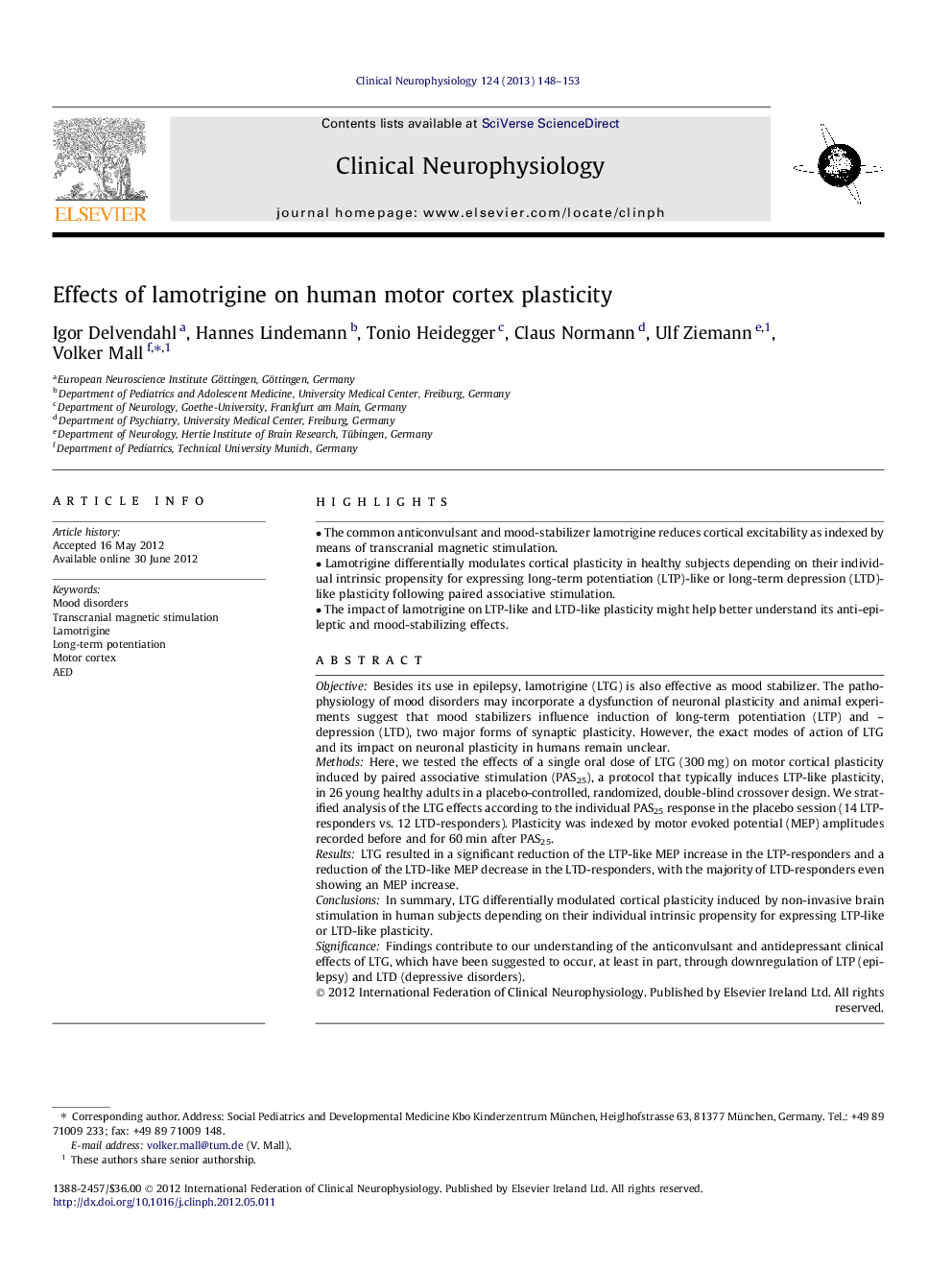| Article ID | Journal | Published Year | Pages | File Type |
|---|---|---|---|---|
| 3043044 | Clinical Neurophysiology | 2013 | 6 Pages |
ObjectiveBesides its use in epilepsy, lamotrigine (LTG) is also effective as mood stabilizer. The pathophysiology of mood disorders may incorporate a dysfunction of neuronal plasticity and animal experiments suggest that mood stabilizers influence induction of long-term potentiation (LTP) and –depression (LTD), two major forms of synaptic plasticity. However, the exact modes of action of LTG and its impact on neuronal plasticity in humans remain unclear.MethodsHere, we tested the effects of a single oral dose of LTG (300 mg) on motor cortical plasticity induced by paired associative stimulation (PAS25), a protocol that typically induces LTP-like plasticity, in 26 young healthy adults in a placebo-controlled, randomized, double-blind crossover design. We stratified analysis of the LTG effects according to the individual PAS25 response in the placebo session (14 LTP-responders vs. 12 LTD-responders). Plasticity was indexed by motor evoked potential (MEP) amplitudes recorded before and for 60 min after PAS25.ResultsLTG resulted in a significant reduction of the LTP-like MEP increase in the LTP-responders and a reduction of the LTD-like MEP decrease in the LTD-responders, with the majority of LTD-responders even showing an MEP increase.ConclusionsIn summary, LTG differentially modulated cortical plasticity induced by non-invasive brain stimulation in human subjects depending on their individual intrinsic propensity for expressing LTP-like or LTD-like plasticity.SignificanceFindings contribute to our understanding of the anticonvulsant and antidepressant clinical effects of LTG, which have been suggested to occur, at least in part, through downregulation of LTP (epilepsy) and LTD (depressive disorders).
► The common anticonvulsant and mood-stabilizer lamotrigine reduces cortical excitability as indexed by means of transcranial magnetic stimulation. ► Lamotrigine differentially modulates cortical plasticity in healthy subjects depending on their individual intrinsic propensity for expressing long-term potentiation (LTP)-like or long-term depression (LTD)-like plasticity following paired associative stimulation. ► The impact of lamotrigine on LTP-like and LTD-like plasticity might help better understand its anti-epileptic and mood-stabilizing effects.
